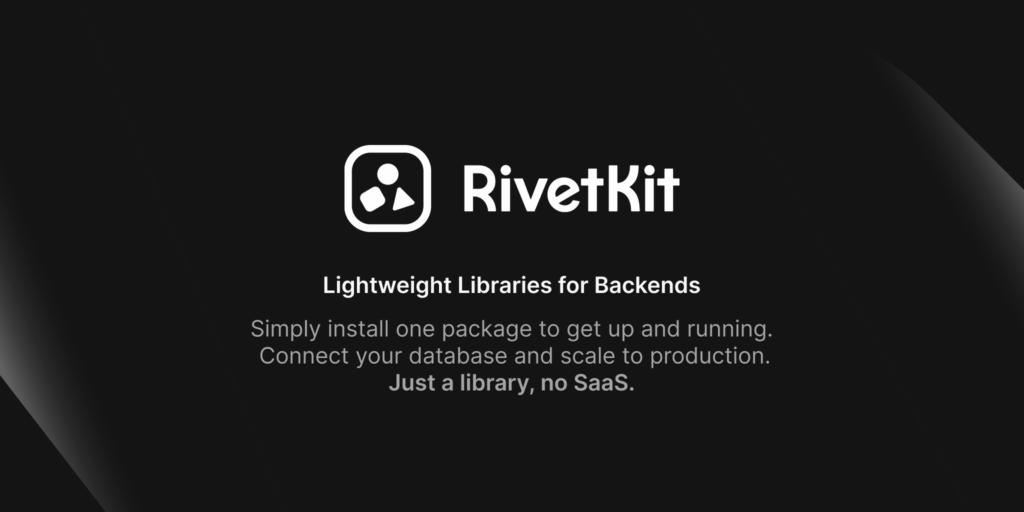rivetkit
Basic Information
RivetKit is an open-source TypeScript library for building long-lived, stateful serverless processes called Rivet Actors. It is billed as an open-source alternative to Durable Objects and is designed to be self-hostable and run on diverse infrastructure. The library gives developers primitives to define actor state, actions, and events while providing server and client tooling to create, call, and manage actors with type safety. The README includes a quickstart that shows installing @rivetkit/actor, defining actors with durable state and broadcastable events, and wiring a server using Hono. The repository also contains multiple examples such as AI agent, chat room, multiplayer game, local-first sync, rate limiter, per-user database, and multi-tenant SaaS to demonstrate common use cases across Node.js, Bun, Redis, and Cloudflare Workers.








